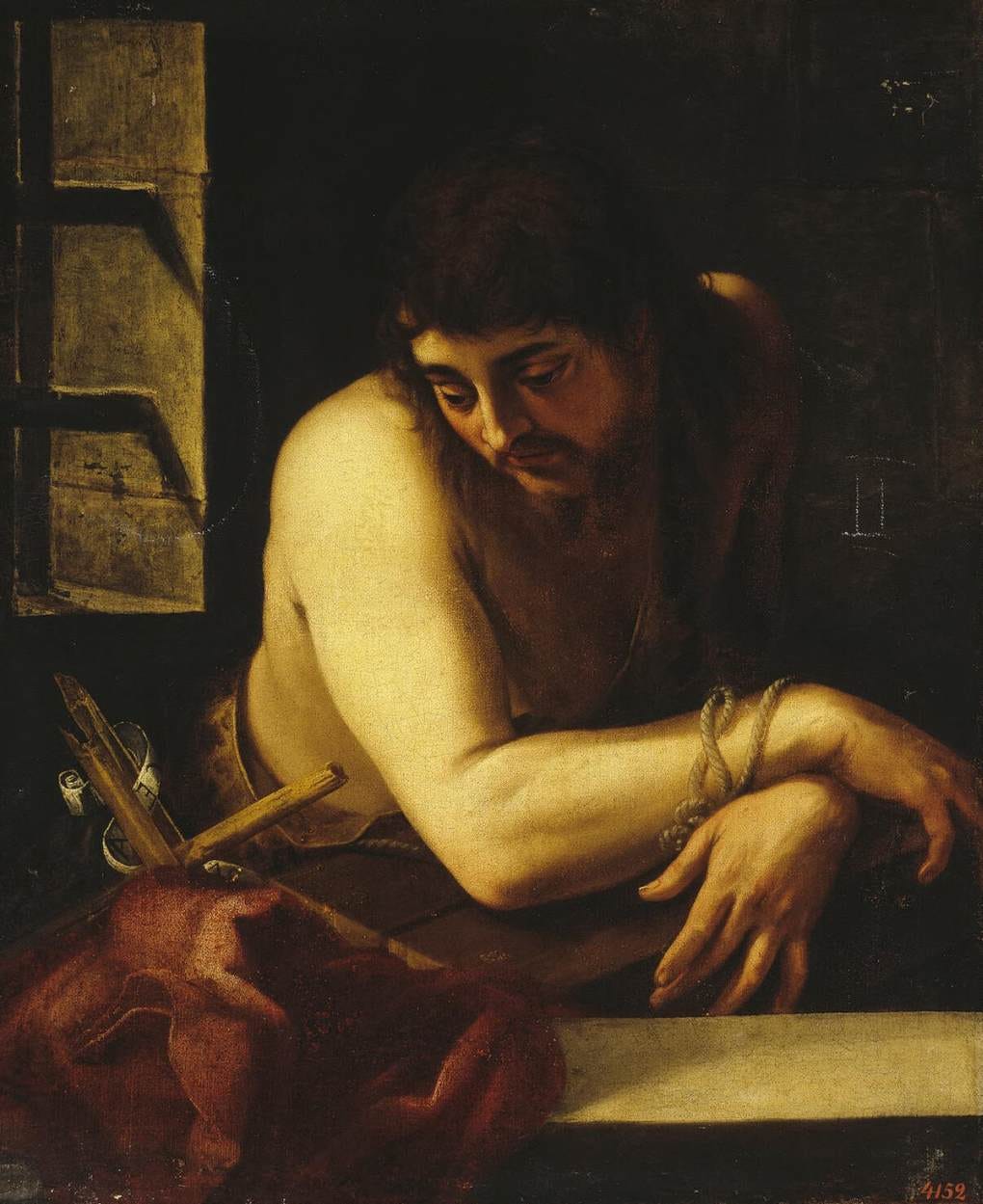
Beginning in 2017, Surgeon General of the United States Vivek Murthy has tried to give greater attention toward combating what he considers a rising epidemic in this country. This is not COVID or SARS, heart-disease or cancer. The epidemic is one we might not think about: loneliness. In an interview the Surgeon-General noted that:
loneliness is hard to see because it doesn’t always look like the stereotype of a person sitting alone in a corner. Loneliness can actually manifest in different ways with different people. It can look like irritability and anger, fatigue, reclusiveness, depression, or anxiety. We may chalk these up to other conditions or concerns, but many of these states have their roots (at least partially) in loneliness.
Murthy argues that loneliness poses real risks to both mental and physical health. The reduction of life span caused by prolonged loneliness is akin to smoking 15 cigarettes a day and greater than obesity. As a priest, and a confessor, I am often struck by how many people, especially young people, silently struggle with loneliness. This is seen by the incredible increase in depression, anxiety, self-harm and most tragically suicide in our culture. Many people—especially many young people—who outwardly appear to be deeply social, with friends and relationships that would otherwise give life meaning and purpose, struggle nonetheless with loneliness.
We are made for relationship, made for communion. And the absence of relationship and communion have a profound impact on every aspect of our lives. Now you may think that this is not exactly an uplifting beginning to a homily on Gaudete Sunday, the day when the Church is supposed to be about “rejoicing”. But I mention this as a way of approaching the question posed by John the Baptist in our Gospel and the response Christ gives to his question.
John the Baptist, with whom we journey in this season of Advent, is set apart by the Lord from the womb for a special mission. He is to be the forerunner, the one who will herald the coming the Messiah. He fulfills the mission given to him, announcing the coming of the anointed one, and calling out to the crowd when he comes, “Behold the Lamb of God, behold him who takes away the sins of the world.” John’s life and mission is characterized by a powerful boldness and a deep faith. He forsakes worldly goods, wearing camel hair and eating locusts and honey. Everything about John says that he is wholeheartedly dedicated to his mission. He is committed. In him, there are no half-measures.
But today we find John the Baptist in a different place. The bold herald of the coming of the Messiah is alone, locked away. And in this place of loneliness, he sends word to Jesus with a question. “Are you the one who is to come, or should we look for another?” The question seems strange coming from him, doesn’t it. He may be the same man who once heralded the messiah with such boldness but now he’s in a different situation in life. Now John is alone. Loneliness has a great power over us. Loneliness can truly shape the way we see things, think about things, even those things we thought we knew.
But what does John do in this place. Through messengers, he reaches out to Jesus and asks a question. This question is one that, if we are honest with ourselves, we ask Christ time and again: Are you really the one you say you are? Are you the one I’ve been waiting for? Are you the one who will fulfill by need? Are you the one who is capable of setting me free? The question does not reveal a lack of faith but instead is a great act of faith. It is as if John is saying: I want to think that you are the one, but how can I know. This question echoes the prayer from the Gospels, “Lord I believe, help by unbelief.”
And how does Jesus respond? Does Jesus scold John? Does he tell the messengers: “Doesn’t he know? Shouldn’t he understand who I am? What is John not understanding? Has he forgotten?” No. Jesus gives none of these responses. He responds with a statement of fact:
Go and tell John what you hear and see: the blind regain their sight, the lame walk, lepers are cleansed, the deaf hear, the dead are raised, and the poor have the good news proclaimed to them.
Jesus points not to ideas but to reality, to experience. Jesus doesn’t just make a claim about how the world should be or give a statement about what is true, he points to evidence. Look at the signs, look at what your eyes have seen, and your ears have heard. Believe not just because I tell you to, believe because of what you yourself have experienced. God’s response to our isolation, to our fear, our isolation and our loneliness, is not merely words of comfort, but the comfort of his presence. The reality of a God who lives with us.
Today we have great cause for joy. We celebrate because the birth of the Savior is drawing near. The Lord who is already present among us in the womb of the blessed Virgin Mary, is soon to be born. Soon we will gaze upon his face, we will see his presence with our own eyes.
Perhaps as we gather here today there are some who are in that place of John, a place of isolation or loneliness, that place where many doubts and questions arise. At some point in each of our lives, I think that time comes. But the crisis that loneliness provokes in us might become a cause of great faith in us. Here is an occasion to turn to Christ in prayer and to ask him: are you the one who is to come, or should I look for another? Are you the one who will fulfill my need? Are you the one who can set me free?
This is also the moment to ask the help of the Holy Spirit to look at our own experience, what we have seen and heard, and to seek to find in our experiences the work of God, to see where it is—how it is—that God has been present with us all along. I think that this is why the Church gives us these words today from the Letter of James:
Be patient, brothers and sisters,
until the coming of the Lord.
See how the farmer waits for the precious fruit of the earth,
being patient with it
until it receives the early and the late rains.
You too must be patient.
Make your hearts firm,
because the coming of the Lord is at hand.
Do not complain, brothers and sisters, about one another,
that you may not be judged.
Behold, the Judge is standing before the gates.
Take as an example of hardship and patience, brothers and sisters,
the prophets who spoke in the name of the Lord.
Patience is a virtue, a divine fruit of the Holy Spirit. And patience is not—as most of us understand the word today—some kind of power to tolerate the existence of others. Patience is not about other people not bothering us. Other people probably should bother us, at least some of the time. We should care enough about what is good in life that sometimes we struggle with other people in relationships. That doesn’t mean we judge or criticize, lash out or rebuke. Only that our faith in Christ not supposed to make into stoics, moral automatons, who go through life placid and calm, completely unaffected by the lives of others—that is no kind of real human life.
Patience, real patience, is a virtue that helps us to combat sorrow—suffering—in our lives. St. Augustine says that patience is a virtue “by which we tolerate evil things with an even mind, that we may not with a mind uneven desert good things.” Sorrow, suffering—the sorrow and suffering of loneliness, perhaps—so often cause us to lose our way in life. We don’t see so clearly. We lose sight of the love of others; we lose sight of the love of God. Our minds become war zones, battlegrounds, of conflicting thoughts and doubts and anxieties. We start to live differently, make poor choices, get invested in the wrong parts of life.
Patience is a grace given to us by the Holy Spirit that strengthens our minds so that we might see clearly during times of suffering and sorrow. You could imagine John the Baptist in prison, alone, in his sorrow and his suffering, receiving the words of Christ with skepticism and doubt. You could imagine John trapped within the war zone of his own mind, losing faith, failing to see in Christ the presence of God among us—the divine remedy to our human isolation. But we know that John responds with the faith that patience preserves in us. We need patience really and truly in our lives, and if you lack patience—if you don’t see clearly in the midst of suffering and sorrow, if you lose sight of God too often—well, start praying for patience, and doing the work of charity. Because that is where patience comes from: from the Holy Spirit, and from the work of love.
The Lord responds to our isolation not with words but with his presence. The Lord, the one we have been waiting for, the one who fulfills our needs, the one who offered himself on the wood of the cross to set us free from the power of sin and death, comes to us today, in what our senses perceive as mere bread and wine but that faith, experience, tells us is the Body and Blood of the Risen Lord Jesus. Christ comes to break into our isolation, to calm our fear, to strengthen our hope. In this we have great cause to rejoice. Loneliness has not the final word and Christ has given us the cure: God heals us not with words, but with his presence among us. Come, Lord Jesus.
Homily delivered December 11th, 2022 at the Basilica of the National Shrine of the Assumption of the Blessed Virgin Mary













